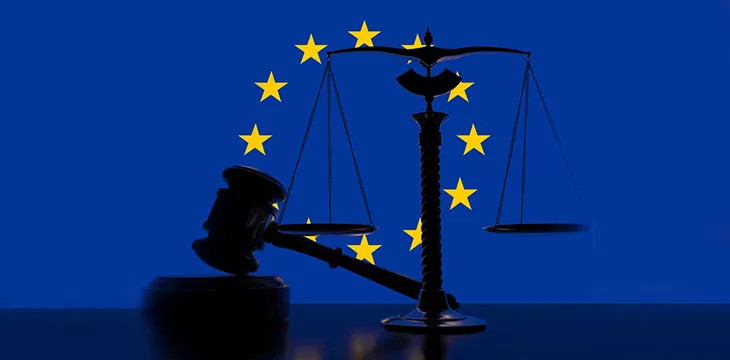|
Getting your Trinity Audio player ready...
|
Europe is moving closer to passing the “world’s first rules on artificial intelligence (AI).” Two committees in the European Parliament have voted for the AI Act, which has been amended to crack down on the use of AI for racial or gender profiling, facial recognition in public places, and predictive policing.
The Internal Market Committee and the Civil Liberties Committee passed the draft AI Act with an 84-7 vote on May 11, the European Parliament confirmed. Twelve members abstained from the vote.
Artifical Intelligence: new transparency and risk-management rules for AI systems have been endorsed by Parliament's internal market and civil liberties committees.
All MEPs are expected to vote on the mandate in June so that negotiations can start with the Council.
— European Parliament (@Europarl_EN) May 11, 2023
The AI Act will be the most comprehensive regulatory framework for the budding AI technology, says the EU Parliament. It has been in the works for two years now and aims to protect the region from the adverse effects of artificial intelligence.
The AI Act was first introduced by the European Commission in 2021 as a blueprint for “human and trustworthy AI.” However, civil societies, human rights activists, and even some legislators quickly raised concerns, saying it didn’t cover the extent of the use of AI in Europe.
Two years later, legislators say they have struck a balance between promoting AI development and protecting the masses.
“Our societies expect us to do something determined about artificial intelligence and the impact it has on their lives. It’s enough to turn on the TV … in the last two or three months, and every day you see how important this is becoming for citizens,” Romanian Member of the European Parliament (MEP) Dragoș Tudorache stated.
The AI Act will be put to a plenary vote in Parliament in mid-June. Trilogue talks will ensue between Parliament, the European Commission, and the Council of the European Union on the terms of the new law. If it passes this stage, it will be left to the individual states to implement. AI firms will, however, be granted a grace period that could extend to two years.
MEPs believe that the AI Act will protect Europeans at a time when some, like Elon Musk and Apple (NASDAQ: AAPL) co-founder Steve Wozniak, have warned about the risks of rapid AI development.
“This vote is a milestone in regulating AI and a clear signal from the Parliament that fundamental rights should be a cornerstone of that. AI should serve people, society, and the environment, not the other way around,” Dutch MEP Kim van Sparrentak commented.
EU sets the pace with the AI Act, but concerns remain
In its amendment of the AI Act, the European Commission addressed many of the concerns raised two years ago about the draft bill. This includes a ban on facial recognition in publicly accessible spaces and racial profiling based on gender, race, religion, or political orientation.
It also outlaws predictive policing based on location or past criminal behavior, as well as the creation of facial recognition databases by scrapping biometric data from social media or CCTV footage. The latter has already landed Clearview AI, the controversial California-based startup, in trouble with French regulators.
Despite the changes, the AI Act still has some major points of concern. One key concern is in risk classification: The Act classifies AI tools from low to unacceptable, the latter being any application that threatens safety, health, the environment, and fundamental rights. However, it leaves it to AI developers to self-police and determine the level of risk their programs pose.
While it’s tough on surveillance and facial recognition, the Act also gives law enforcement agencies leeway to use it to prosecute serious crimes. This, digital rights group EDRi says, “could incentivize mass retention of CCTV footage and biometric data.”
In order for artificial intelligence (AI) to work right within the law and thrive in the face of growing challenges, it needs to integrate an enterprise blockchain system that ensures data input quality and ownership—allowing it to keep data safe while also guaranteeing the immutability of data. Check out CoinGeek’s coverage on this emerging tech to learn more why Enterprise blockchain will be the backbone of AI.
Watch: Patrick Prinz discusses BSV adoption in Europe

 02-24-2026
02-24-2026 




